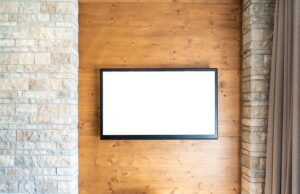A marble reception desk, scented air diffusers, and a grand piano in the foyer greet patrons at one of Gangnam’s flagship karaoke lounges, such as tendot5.com. Far removed from coin-operated booths of the nineteen-nineties, these establishments blend hotel-grade service with customised sound design.
Hospitality principles underpin the model
Staff undergo barista and sommelier training so they can suggest coffee-bean origins or pair fine whisky with a duet session. Touch-screen ordering eliminates wait times, while biometric door locks guarantee that only the booking group enters each suite. This attention to detail commands hourly rates up to five times the city average yet still records strong occupancy.
Design as a silent marketing tool
Rooms echo Seoul’s trendiest interior styles—arched doorways, terrazzo flooring, indirect cove lighting. Instagram visuals circulate widely, positioning the lounges as must-visit sets for lifestyle influencers. The aesthetic appeal draws non-singing visitors who book simply to photograph, adding secondary income streams through venue hire for shoots.
Culinary elevation
Chefs poach lobster tails and pan-sear scallops to order, replacing the traditional instant noodles once synonymous with noraebang snacks. The shift answers dietary expectations of global travellers and local professionals accustomed to fine dining. Beverage menus feature single-origin teas for patrons who prefer a caffeine lift over alcohol.
Personalisation through data
Repeat customers log into in-house apps that remember preferred song keys, microphone reverb levels, and even preferred seat angle. The system sets the room before the party arrives, conveying a sense of bespoke attention without employing extra floor staff. Guests who feel recognised often extend bookings or purchase bottle upgrades, bolstering margins.
Economic ripple effect
Artisans supplying custom furniture, lighting, and tableware benefit from steady orders. A report by the Gangnam Chamber of Commerce values the premium karaoke supply chain at 62 billion won annually, a figure that outpaces traditional bar refurbishment sectors.
Sustainability initiatives
Hotels in the area partner with these lounges to reuse linen offcuts as sound-dampening wall panels, reducing textile waste. Kitchens limit plastic by switching to kegged water served in glass carafes. The eco-conscious pivot appeals to clients who align spending with carbon-footprint awareness.
Future prospects
High-end karaoke venues plan to integrate spatial audio hardware and holographic backing dancers by 2026, further lifting the entertainment bar. As long as operators balance opulence with usability, Gangnam’s luxury noraebang segment appears ready to chart new revenue highs even if nationwide venue numbers decline.

















